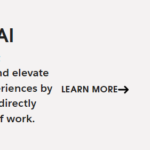In any business, internal clients are just as important as external ones. These are the employees, managers, and teams within your organization who rely on your products, services, and support. When you prioritize your internal clients, you create a culture of trust and collaboration that can lead to greater success for your entire organization.
One way to prioritize your internal clients is to ensure that their needs are being met. This means understanding their goals, challenges, and pain points, and working to address them. For example, if your internal clients are struggling with a particular software or process, make it a priority to address their concerns and find a solution.
Another way to prioritize your internal clients is to make sure they have the resources they need to do their jobs effectively. This includes providing them with the necessary training, tools, and support to perform their tasks.
It’s also important to communicate regularly with your internal clients to ensure that they are aware of what is happening within the organization. This could include sending out regular newsletters, holding town hall meetings, or setting up regular check-ins.
In addition, by creating an environment where internal clients feel valued and respected, you will foster a sense of loyalty and motivation among your employees. This can lead to increased productivity, higher job satisfaction, and a lower turnover rate.
When you prioritize your internal clients, you create a culture of trust and collaboration that can lead to greater success for your entire organization. By valuing your internal clients, you are ultimately valuing your organization and its success.
In summary, prioritizing your internal clients means understanding their needs, providing them with the necessary resources, communicating with them regularly, and creating an environment where they feel valued and respected. This will lead to a more motivated and productive workforce, and ultimately, greater success for your organization.
The impact of psychological safety at work
Psychological safety is the belief that one can speak up and express their thoughts and ideas without fear of being judged, rejected, or penalized. It is a key component of a healthy and productive work environment.
When employees feel safe to share their thoughts and ideas, they are more likely to be engaged, innovative and motivated. They are also more likely to speak up when they see problems or inefficiencies in the workplace, which can lead to improvements in processes and productivity.
On the other hand, when employees feel unsafe speaking up, they may keep their thoughts and ideas to themselves, leading to a less creative and less productive workforce. Additionally, employees who feel unsafe may also be more likely to experience burnout, a high turnover rate, and poor mental health.
Creating a culture of psychological safety can be achieved by encouraging open communication, actively listening to employee feedback, and addressing concerns in a timely manner. Additionally, it’s important for managers and leaders to set an example by being open to feedback themselves, and by being approachable and responsive.
It’s also crucial to create a safe environment for employees to express their thoughts, ideas, and concerns. This could be done by having an anonymous feedback system or having regular check-ins where employees can express their concerns without fear of retaliation.
In conclusion, psychological safety is crucial for a healthy and productive work environment. It allows employees to feel safe to speak up and express their thoughts and ideas, leading to a more engaged, innovative, and motivated workforce. Organizations that prioritize creating a culture of psychological safety will ultimately see benefits in terms of employee satisfaction, productivity, and overall success.
Also check How to Pay the Straight Talk Bill




